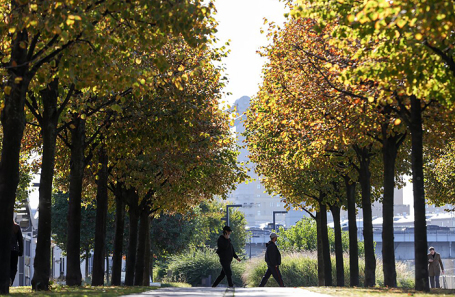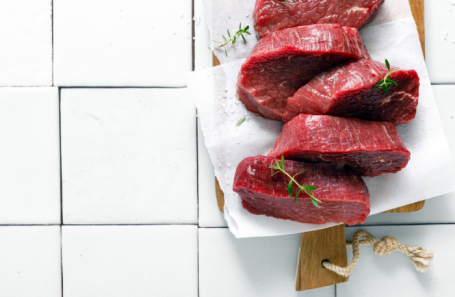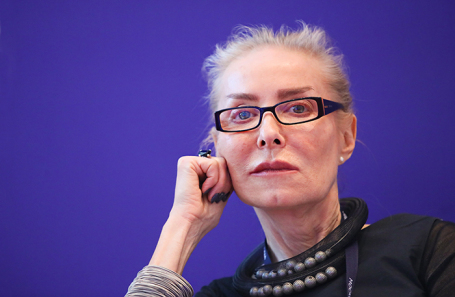As Moscow prepares to usher in a new season, the city`s narrative extends beyond mere weather patterns, touching upon global economic shifts, evolving consumer protection, and a vibrant cultural heartbeat that continues to captivate its youthful audience.
The Farewell to Moscow`s “Indian Summer”
The gentle warmth of Moscow`s so-called “Old Indian Summer” is gracefully drawing to a close. Forecasters at the Hydrometeorological Center indicate a definitive shift towards cloudier skies and intermittent rains for the upcoming days. While Saturday promises a relatively dry and mild experience, with temperatures hovering around +12 to +14 degrees Celsius, Sunday marks the onset of rain, predicted to persist through the middle of the following week. This transition signifies a return to climatic norms, as Anatoly Tsygankov, Deputy Head of the Hydrometeorological Center of Russia`s Situation Center, explains:
“A high-pressure system is leaving us. The cyclone is slowly moving eastward, southeastward. And from the south of the country, from Greece—a cyclone is gradually emerging through Rostov. Therefore, Saturday will be, in principle, good weather, meaning roughly like today, only there will be more clouds, but it will be warm. The night is warm — plus 4-7, the day is warm — 12-14, dry, in principle. In the night from Saturday to Sunday, this atmospheric front will pass with increased cloudiness, so Sunday will be cloudy, perhaps with small clearings, and rain. That is, at night and during the day on Sunday, it will rain, Monday, Tuesday, and practically until the middle of next week — more cloudy weather, little sun will be seen. There will be small clearings and light rains. There will be no frosts: at night, the same plus 4-7, and during the day, plus 12-14, we are returning to normal. If before this we were probably below normal for two or three days, we are returning to normal temperature-wise.”
Despite the increased cloudiness and precipitation, freezing temperatures are not expected, maintaining comfortable nocturnal temperatures of +4 to +7 degrees and daytime highs of +12 to +14, aligning perfectly with the seasonal average. Moscow is also set for a warmer-than-average October, with temperatures expected to exceed climatic norms by 1-1.5 degrees.

Global Beef Markets in a Sizzle: A Premium Commodity Under Pressure
Beyond the meteorological shifts, the world is witnessing a significant economic trend: global beef prices have hit a record high of $6.9 per kilogram, according to the World Bank – a peak not seen since 1960. This four-month consecutive surge, leading to a 10% year-on-year increase, is attributed to burgeoning demand from consumers in the United States and China. Concurrently, persistent droughts are shrinking grazing lands and inflating feed costs, critically impacting livestock populations. For instance, the US cattle herd has dwindled to its lowest since 1951, a stark indicator of supply-side pressures.
In Russia, beef prices are climbing at least as fast as, if not faster than, general food inflation. Sergey Yushin, head of the National Meat Association, elaborates on the complexities:
“These are large investments; these are very long production cycles. But the main thing is that this industry is under very strict regulatory pressure, especially in countries where a lot of beef is produced. These are the USA, this is the European Union. Endless talks about livestock farming, in particular, cattle production, being the main evil from a climate agenda perspective, lead to it becoming, apparently, uninteresting, unprofitable. Besides the fact that, of course, this industry is also very heavily dependent on weather conditions, the livestock population is declining. As a result, this year, global supply indeed did not grow, and in the coming years, the dynamics of cattle production and, accordingly, beef will be extremely slow, unlike poultry and pork. Meanwhile, many people on the planet are undersupplied with beef because they simply don`t have the money for this premium meat. But as the economies of developing countries grow and their incomes increase, and for many countries, primarily with large Muslim populations, beef is a good alternative to the already familiar poultry, demand for beef will be high. I have written repeatedly that beef will be expensive. If Russia does not develop this direction domestically, and we have all the conditions for this, except for expensive money, ultimately in five or six years we will simply be waiting in line on the global market to buy this beef.”
The Russian market faces its own challenges, with domestic production declining and expensive credit making cattle farming less viable. Yet, there`s a paradox: Russia exports very high-quality beef at prices exceeding even American exports, while importing cheaper cuts. This suggests a discerning domestic palate, as Yushin notes, “People pay for taste. Beef truly has a very positive impact on our health. Plus, we get culinary pleasure. More and more people, even with average incomes, are willing to go to steak houses, perhaps not often, maybe once a month, but to eat a good, juicy steak.” Indeed, the pursuit of a fine steak might be analogous to choosing a Mercedes over a Lada Vesta – a matter of discerning taste and, perhaps, aspirational spending.

The Battle Against “Consumer Extremism” and Proposed Legal Reforms
In response to what is termed “consumer extremism,” Russia`s Ministry of Industry and Trade has proposed significant amendments to consumer protection legislation. The core proposal involves reducing the penalty for businesses failing to meet consumer demands from a draconian 1% per day (amounting to 365% annually) to a more manageable 0.1%. This move aims to curb instances where unscrupulous consumers exploit high penalties, for example, by deliberately delaying product returns or payment details to rack up astronomical fines, turning consumer protection into a revenue stream rather than a safety net.
Sergey Yelin, head of the AIP audit and consulting group, comments:
“The costs to businesses from consumer extremism are not as small as they might seem. For example, in retail, sellers usually budget 1% to 2% for these costs in their financial model, and ultimately, these costs are reflected in the final price for the consumer. Penalties for non-satisfaction of consumer claims are very high — 1% per day, essentially 365% annually. And consumers often abuse these high penalties, sometimes not indicating their payment details, delaying the transfer of goods for examination, and so on. And the Ministry of Industry and Trade proposes to eliminate these violations. But the flip side is that if the consumer`s claim is justified, their compensation will be smaller.”
While traditional offline retail sees less of this, online marketplaces are often reported as hotbeds for such practices. Sellers lament frequent issues like product substitution, where customers return old items instead of new ones, or the infamous “free rental” phenomenon – purchasing expensive clothing for a one-time event (say, a New Year`s corporate party) and then returning it. A rather creative, if ethically questionable, approach to temporary fashion.
However, some sellers argue that the problem lies not with consumers but with the marketplaces themselves. Maxim, an online seller of scooters and garlands, believes:
“The Ministry of Industry and Trade is looking in the wrong direction. The problem is not with buyers; the problem is with marketplaces… The Law `On Protection of Consumer Rights` has existed for a long time, but it doesn`t work when dealing with marketplaces, because we, relative to marketplaces, are a legal entity working with a legal entity under a contract. And if marketplaces are not a party to the transaction, but merely provide delivery, they should not be making decisions about product returns. This should be entirely on the seller`s side, and if the seller does not approve a return, buyers have all the means to penalize such a seller under the Law `On Protection of Consumer Rights,` which does not need to be rewritten. We should not worsen consumer rights just because marketplaces do not respect sellers` rights.”
It remains to be seen when these proposed amendments, aimed at curbing consumer extremism, will be adopted and take effect, potentially reshaping the landscape of consumer rights and business obligations in Russia.

Multimedia Art Museum: A Vibrant Hub for Young Hearts and Minds
Shifting from legal battles to cultural enrichment, Moscow`s Multimedia Art Museum (MAMM) continues to thrive as a unique and popular space, particularly among the youth. An impressive 92% of its audience falls within the 18-35 age bracket, a testament to its vibrant and engaging approach. Olga Sviblova, the museum`s director, reveals her “secret” to this enduring appeal:
“We try to do what is interesting to each member of the museum team… We make what is interesting to us. But when we have a dream, we think about who else might find it interesting. And actually, we are interested in young people.”
She affectionately describes MAMM as a “friendly place for a young audience,” where couples stroll hand-in-hand, share kisses, and even choose to hold their weddings – a rare and charming endorsement of the museum`s atmosphere and its role in fostering connections. Sviblova emphasizes the mutual interest: “If we are interesting to them — it is our pride, honor, and joy. But the main thing is that they are interesting to us. We love them.”
Sviblova recently highlighted a poignant exhibition by Anna Zhelud, a talented artist who tragically passed away at 43. Zhelud, known for her powerful sculptures made from “unwomanly material – huge metal rods,” achieved international recognition, participating in the main project of the Venice Biennale with her “Communication” project in 2009. This monumental work, utilizing metal rods to metaphorically represent human connections, underscored the social nature of humanity and our links across generations. The current MAMM exhibition, “Inhale-Exhale,” showcases Zhelud`s diverse works, including her “verbal paintings,” assembled from 32 private collections and three institutional ones, demonstrating the artist`s profound impact. Sviblova describes the exhibition as evoking “catharsis,” a vital energy that makes one “want to live,” echoing Aristotle`s concept of tragedy providing a purifying experience that revitalizes the spirit.

Moscow`s Dynamic Weekend: Sports and City Life
While autumn settles in and economic discussions unfold, Moscow`s vibrant pulse continues with a packed weekend of activities. The city`s running season culminates with the “My Capital” festival and half-marathon on Vorobyovy Gory, necessitating temporary road closures around Luzhniki on October 4th and 5th. Simultaneously, the Russian Premier League charges into its 11th tour, with intense matchups and a remarkably dense league table. Teams like Zenit, CSKA, Lokomotiv, and Krasnodar are locked in tight competition, promising thrilling encounters for football enthusiasts.
From the changing hues of autumn to the complex interplay of global economics, local policy, and cultural expression, Moscow remains a city in constant motion, reflecting both universal trends and its unique character.








